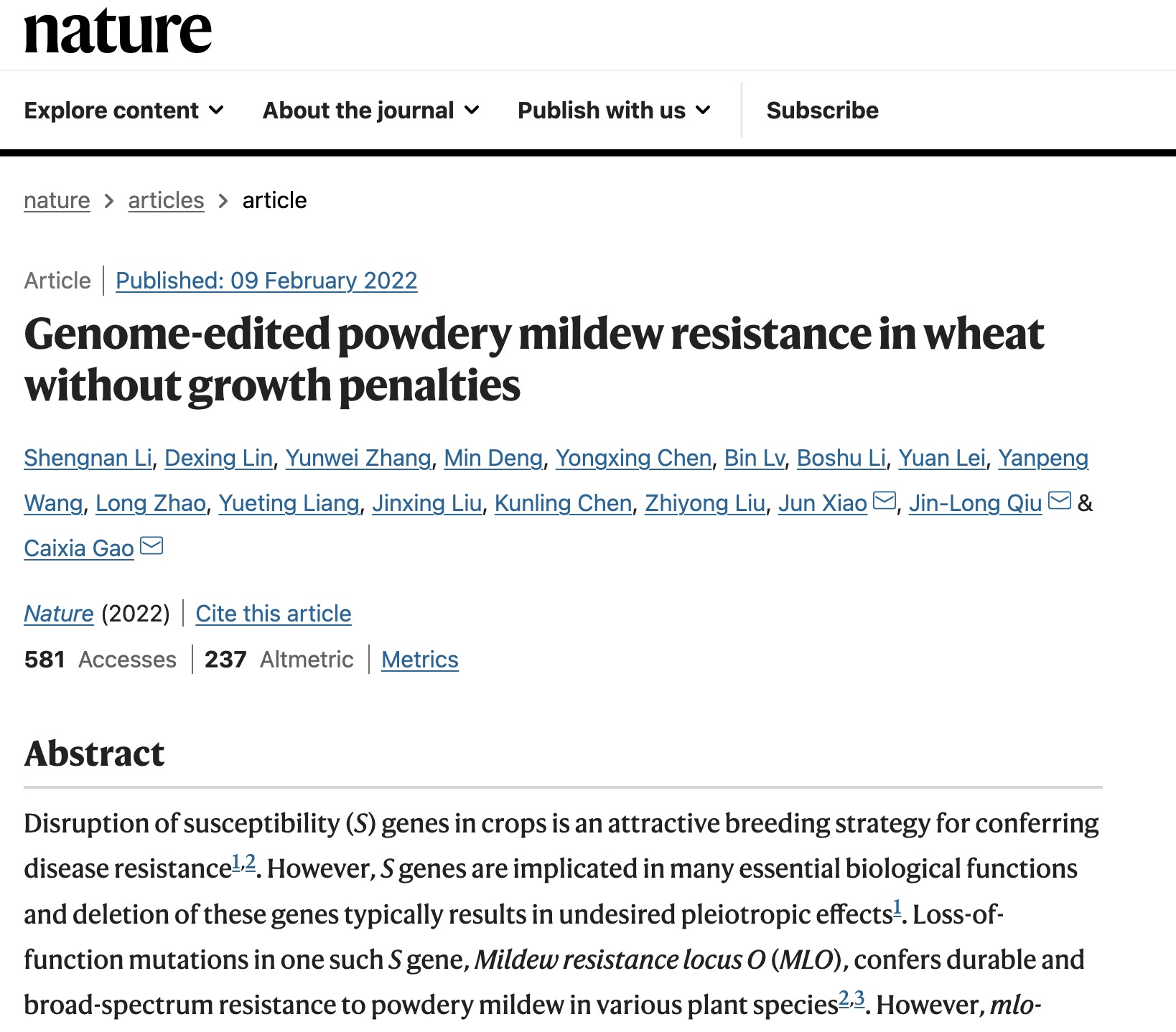
Chinese scientists have developed anti-disease wheat with genome-editing technology. /CFP
Chinese scientists have developed anti-disease wheat with genome-editing technology. /CFP
Chinese biologists have revealed the mechanism behind an anti-disease wheat mutant developed using genome-editing technology, according to a study published Thursday in the journal Nature.
The scientists used genome-editing technology to enable elite wheat varieties to resist powdery mildew, a severe crop disease, without yield losses.
The study was carried out by researchers from the Institute of Genetics and Developmental Biology and the Institute of Microbiology, both under the Chinese Academy of Sciences.

A screenshot of Chinese biologists' paper "Genome-edited powdery mildew resistance in wheat without growth penalties" published in Nature, February 10 (BJT), 2022. /Nature
A screenshot of Chinese biologists' paper "Genome-edited powdery mildew resistance in wheat without growth penalties" published in Nature, February 10 (BJT), 2022. /Nature
Powdery mildew is one of the major wheat diseases. According to China's Ministry of Agriculture and Rural Affairs, the disease affects about 6.67 million hectares of wheat every year in the country. The yield of severely affected fields can be cut by 40 percent.
Pathogens often infect plants through their susceptibility genes. Mutations in such genes can bring disease resistance to plants, but they usually result in undesired effects.
In 2014, researchers from both institutes developed a wheat variety resistant to powdery mildew by editing one of the susceptibility genes, the mildew-resistant locus O (MLO), but it caused yield losses, premature aging and small wheat.
The researchers found that an MLO mutant named Tamlo-R32 can maintain the disease resistance with growth and yield levels similar to standard wheat varieties.
The researchers used precision genome editing to introduce the advantages of the Tamlo-R32 mutant into major wheat varieties massively grown in China and create new varieties with resistance to powdery mildew without yield loss.
Compared with traditional breeding methods, genome editing can shorten the breeding process considerably, showing impressive application prospects in modern agricultural production, said Qiu Jinlong, one of the researchers.
(With input from Xinhua)

